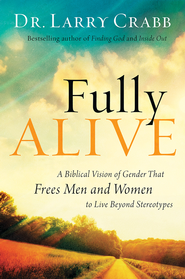***
But the biggest reason for my disconnect with A Confident Heart is rooted not in Swope’s tone or style, but in the very problem she attempts to address. At the end of the day, I don’t know if I believe ‘self-confidence’ is actually something Christians need in the first place. Swope occasionally calls it ‘God-confidence’ in order to distinguish it from sinful pride, but she still essentially means ‘the way we think about ourselves.’ The promises she highlights talk a lot about who we are, what we will receive from God, etc. These are biblical promises, but the end goal still seems to be the change how we think about ourselves. And I’m not sure that’s helpful or necessary. Meditating on God’s promises does tell us about ourselves, but first and foremost, those promises tell us about God. And when we’re full up with faith in the character of God, I don’t think we’ll actually spend all that much mental energy on ourselves at all. I don’t think self-confidence will enter into it. Which makes sense—when I experience low ‘self-confidence’, it is not myself I am doubting, but God. I am questioning His sovereignty, His ability to work through a sinful vessel, His finished work on the cross, His goodness, His faithfulness. I don’t think there’s actually a Christian category for ‘self-doubt.’ We’re either experiencing appropriate humility about our fallen nature and our weakness apart from Christ, or we’re doubting God Himself.
As a result, I tend to eye with skepticism any scheme with the ultimate goal of me thinking about me. Even if I’m doing it in a more biblical way, I’m still thinking about me. And I just can’t bring myself to think that should be our goal. I sincerely doubt that Paul gave himself pep-talks about self-confidence. You see a lack of self-confidence in Bible heroes when they struggle—Gideon, say, or Moses, who doubted that God could use them. They might claim to suffer from self-doubt, but really, they doubted God—doubted that He would (or could) do what He said He would. Since their doubts are not really about themselves at all, God addresses those doubts by telling them who He is. And once those doubts are assuaged, you don’t see Gideon or Moses bursting into a rousing chorus of “I Have Confidence” from The Sound of Music. They’re too busy talking about God. Once these folks see God aright, once they have confidence in God, their self-confidence is a non-issue. It’s beyond irrelevant. Like a cow’s opinion, it’s moo.
Full review available here.



















